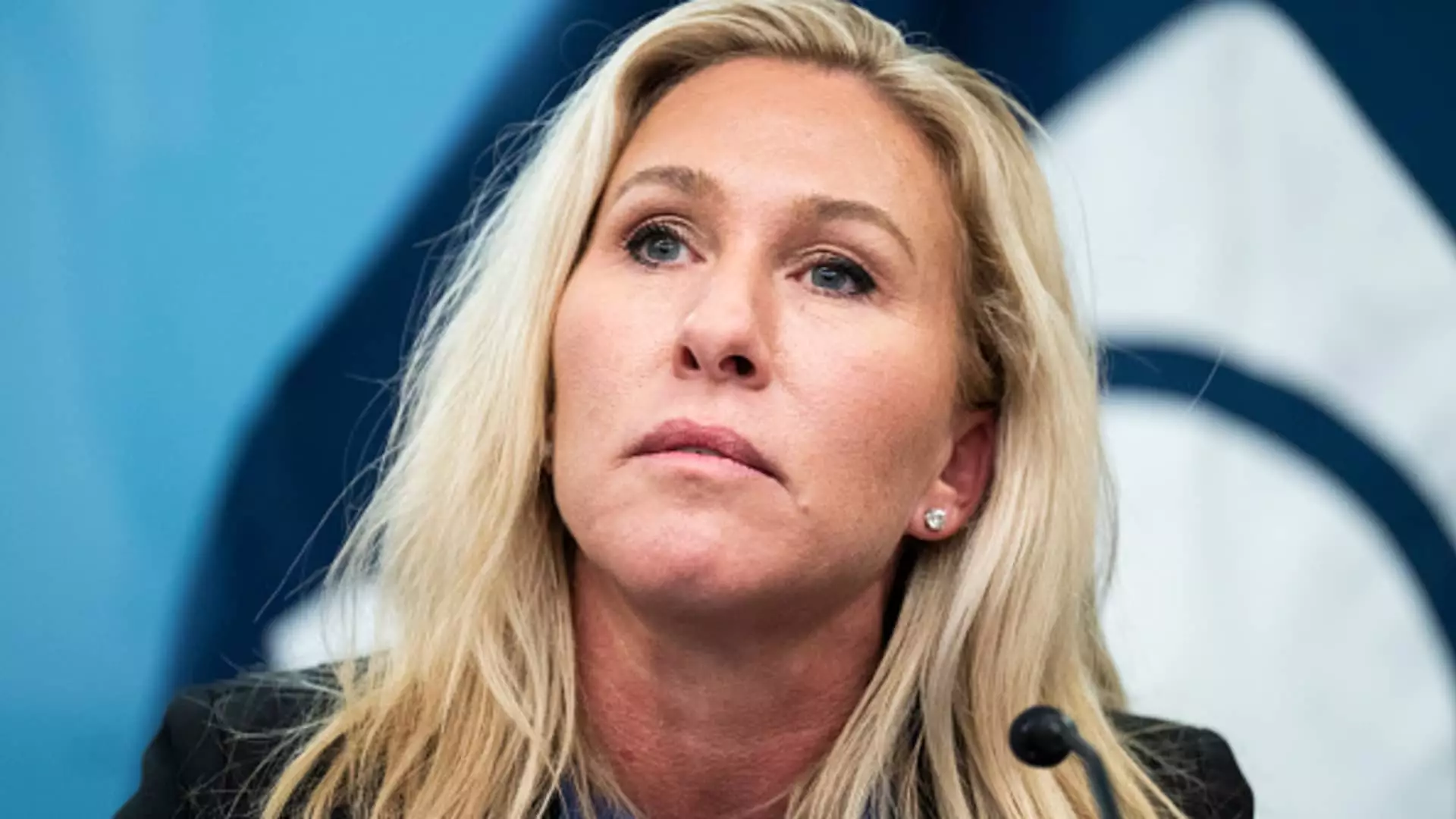In a striking development within the U.S. Congress, Representative Marjorie Taylor Greene from Georgia has been chosen to head a newly formed House subcommittee focused on governmental efficiency. This decision comes amid a burgeoning partnership with a private initiative led by prominent figures like Elon Musk and Vivek Ramaswamy, marking a significant shift in the approach to governance. The implications of this collaboration may extend far beyond mere administrative efficiency; they encapsulate a fusion of political power and entrepreneurial dynamism that could redefine how government operates in the 21st century.
At the heart of this initiative is the Subcommittee on Delivering on Government Efficiency, aptly sharing an acronym—DOGE—with Musk and Ramaswamy’s outside entity, which hints at a cultural zeitgeist reflecting digital innovation and meme culture. Such a branding approach not only resonates with a younger, tech-savvy electorate but also signals a proactive attitude towards reforming an often-criticized bureaucratic landscape.
Shared Goals and Ideological Alignments
The collaboration between Congress and private sector leaders may serve to bridge ideological divides that have historically plagued government reforms. Greene’s public commitment to addressing government inefficiencies resonates with conservative calls for cutting through red tape and dismantling what many refer to as an oversized bureaucratic apparatus. Her statement to CNBC highlighted her eagerness to bring “transparency and truth” to the governance process, indicating a philosophical alignment with Ramaswamy’s advocacy for accountability within governmental operations.
Additionally, the subcommittee has a clear mandate: investigate wasteful practices within federal agencies while strategizing on potential reorganization. These goals mirror those outlined by Ramaswamy, signaling a concerted effort that could reshape how citizens engage with and perceive their government. Crucially, this emphasis on public accountability is positioned as a remedy for what many see as stagnation within government ranks, often filled with “fat cats,” as House Oversight Chairman James Comer astutely pointed out.
However, the formation of this subcommittee is not without its critics. Greene’s previous history, including her removal from committee assignments due to her promotion of conspiracy theories, raises concerns about the motivations driving this new initiative. Critics argue whether Greene’s personal agenda might overshadow the committee’s objectives, potentially resulting in selective transparency rather than a comprehensive investigation into government practices.
Moreover, the alignment with high-profile business personalities like Musk, known for his unorthodox approaches to leadership and governance, sparks debate about the appropriateness of blending governmental oversight with entrepreneurial visions. Are Musk’s business strategies—often characterized by rapid pivots and risk-taking—suitable for structuring the tedious landscape of federal governance? This partnership could be viewed as a double-edged sword; while it may usher in innovative solutions, it could also risk oversimplifying complex governmental structures into easily digestible soundbites, reminiscent of viral internet memes.
The DOGE initiative’s ambitions point to an essential cultural shift in political discourse, one that favors agility and adaptability in addressing systemic inefficiencies. The notion of using public platforms to expose government waste aligns with contemporary democratic values that prioritize transparency and citizen engagement. However, true success for Greene and her team will depend on their ability to translate lofty ambitions into tangible improvements in governmental operations.
As the subcommittee gears up for its first sessions, it will be crucial to monitor how these dynamics unfold. Will they achieve bipartisan cooperation, or will the ideological rifts deepen? Additionally, the effectiveness of their policies might hinge on public reception and engagement, as citizens increasingly demand a role in shaping governance. While the ROAD to government efficiency may be paved with promises, the mechanisms of accountability and true reform will eventually define the legacy of Greene’s leadership in this subcommittee.
Greene’s new role within the Subcommittee on Delivering on Government Efficiency, in collaboration with private sector luminaries, represents a profound shift in how government interacts with innovative minds outside its walls. The path ahead is laden with potential challenges and opportunities, marking a pivotal moment in the ongoing dialogue about the future of American governance.


Leave a Reply